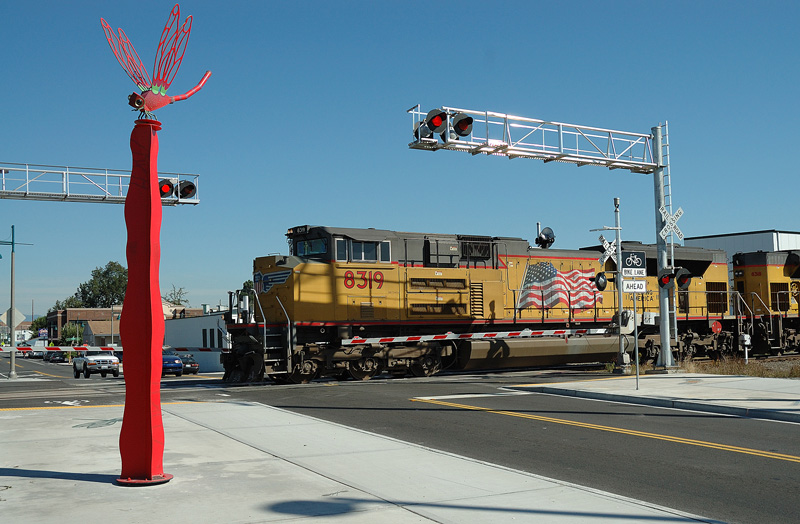Hundreds Die Each Year In Train Accidents
Between January and June this year, 397 people died in a train accident in the United States. Railroad crossings are dangerous spots, filled with crossing arms, flashing lights, and as the train approaches, often the sound of the train’s warning whistle as it comes closer to the intersection of track and roadway. Still, many people are confident that they can “beat the train” and it’s a huge risk.
If someone decides they can “beat the train” and they are wrong, then all too often they pay for their miscalculation with serious injuries or death for themselves as well as any passengers in their vehicle.
Beat the Train? Don’t Risk It: Consider These Tragic Stories — Serious Injuries and Deaths All In the Past 90 Days
1. Muncie man fighting for his life after trying to beat the train
This morning, news out of Muncie is that Freddie Cooper is fighting for his life in an Indiana hospital after being struck by a train last evening as he was trying to cross the railroad tracks on foot. Mr. Cooper was hit by the train, estimated to be going around 25 MPH, and is now in serious condition.
According to news reports, Mr. Cooper was trying to beat the train because he was late for work; witnesses saw him running, and then being thrown between 30 – 40 feet when the train hit him.
2. Teens in SUV trying to beat the train have fatal crash with moving train at Sullivan crossing
This news comes only a short while after three kids driving an SUV tried to beat the train in Sullivan, Indiana, as the moving train was coming toward the street crossing. Witnesses said that the SUV slowed down at the railroad crossing, then the driver opted to try and cross before the train arrived — mistaking how fast the train would get to the crossing and despite the train’s warning whistle.
Tragically, two of the teenagers in the vehicle were seriously injured and the 16 year old boy sitting in the front passenger seat died in this train crash.
3. Two Waukesha beat the train accidents within weeks of each other
In July, a train left Chicago on its way to Fond du Lac, and on its way crashed into James Hart, who reportedly told police that he was trying to beat the train when he crossed the railroad tracks despite being hampered from fast movement due to his use of a cane. The 131 car train hit Mr. Hart while he was on the tracks but miraculously, he survived with injuries that included two broken legs and a broken right arm.
The next month, another train accident happened in Waukesha, when Lauri Ahl tried to cross the railroad tracks before the train arrived. In what has been described as another “beat the train” accident, Ms. Ahl seemed aware of the train’s approach but made a mistake in determining how fast it was going as she attempted to cross the tracks despite being physically challenged from moving quickly due to walking with a limp.
Railroad Crossings and Moving Trains Are Dangerous – Be Careful!
According to the National Highway Traffic Safety Administration (NHTSA) and Operation Lifesaver:
- Most train accidents (3 out of 4 crashes) happen close to home (within 25 miles of the residence).
- Half of all train crashes happen within 5 miles of home.
- The risk of death in a train crash for a U.S. motorist is 20 times HIGHER than their risk of dying in an accident with another motor vehicle.
Railroads are heavily regulated by both state and federal law because, as common carriers, they are deemed to have a special duty to the public – and because trains are so very dangerous. These are huge and heavy machines that move at high speeds and cannot stop quickly. A fast moving train cannot stop on a dime and as a result, many crashes and fatal accidents occur as the train is screaming its whistle and trying to stop before impact.
For those injured or killed in a train crash, there will be the debated legal issues of duty, breach, and assumption of the risk of injury or death. Liability for train accidents can be complicated as well by factual issues such as the conditions of the roads and rails and the possible malfunction of equipment in either train or vehicle. Train accident claims and lawsuits are usually very sad and very horrific cases for juries as well as heart-wrenching tragedies for the families and loved ones. Be careful out there.


